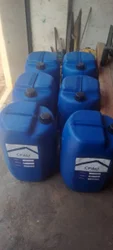- Empty cart.
- Continue Shopping
Corrosion Inhibitors Boiler Water Chemical
Oxygen Scavengers (e.g., sodium sulfite) to remove dissolved oxygen.
Filming Amines to form protective layers on metal surfaces.
Phosphate-based Inhibitors to control pH and prevent scale.
Volatile Corrosion Inhibitors (VCIs) to protect areas without direct water contact.
Polymeric Inhibitors to create a protective film over metals.
Corrosion inhibitors for boiler water are chemicals used to protect the metal surfaces of a boiler from the harmful effects of corrosion caused by water and other factors. They help extend the life of the boiler, improve efficiency, and prevent costly repairs. Corrosion in boilers can lead to issues like pitting, scale buildup, and general wear that can impact performance and safety.
Here are a few types of corrosion inhibitors commonly used in boiler water:
Oxygen Scavengers: These chemicals remove oxygen from the water, preventing corrosion caused by dissolved oxygen. Common oxygen scavengers include sodium sulfite, hydrazine, and carbohydrazide.
Filming Amines: These inhibitors form a protective film on metal surfaces to prevent corrosion. They are particularly effective in low- and high-pressure boilers.
Phosphate-based Inhibitors: Phosphates are commonly used to prevent both corrosion and scale buildup. They help maintain proper pH levels, which are critical for boiler system integrity.
Volatile Corrosion Inhibitors (VCIs): These chemicals release vapor-phase molecules that protect metal surfaces from corrosion, especially in areas where water isn’t in direct contact with metal surfaces.
Polymeric Corrosion Inhibitors: These are organic polymers that form a thin protective layer over metal surfaces, reducing the likelihood of corrosion.















Reviews
There are no reviews yet.